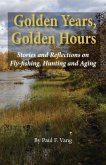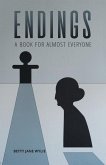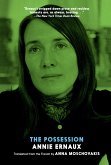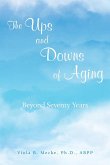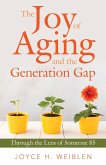Pivotal events in Clarissa P. Green's childhood altered the trajectory of her family relationships, personal life and career. Within the course of one year, her youngest sister passed away within seven months of her birth, and both her father and grandmother suffered near-fatal heart-attacks. In the 1950s, silence was considered an appropriate response to tragedy. Green writes, "my parents believed the right way to handle misfortune was to 'turn the page.' This meant they didn't talk with their children about our sister's death or any of the other awful events around that time. It's taken me most of my life to understand how this crisis changed my family so profoundly, how it shaped my future." It took a move from New York to Florida to bring the family back together. In her twenties, Green was drawn to study the ins and outs of family crisis. In graduate school, and then as a professor in Vancouver, British Columbia, Green began to help grieving families regain balance - comforting the parents of premature newborns and helping families whose wives or mothers were diagnosed with life-threatening illness. Her support of these families led to a decades-long career in clinical therapy, working with aging parents and their mid-life children. Green writes, "The lengthy journey through aging involves numerous reasons to stumble - burdensome caregiving, coping with illness, sibling strife, money dynamics, unfinished business… No matter what they were particularly upset about, mid-life children and old parents alike wanted to be seen as adult, to act grown-up in front of one another. Parents' aging, especially illness, called for responsible approaches to tough situations, respect for differences in perspective, authentic and open conversation, boundaries." An award-winning teacher and advocate for the power of a learner's personal connections in making theory and research meaningful, Green listened to her clients stories. As the storyteller of her own family, in Grownupedness Green weaves together her personal experiences alongside those of her clients - in humorous and touching detail - to make her deep understandings of family and aging available to all. In Part I, Green explores what it means to be an "elderly young girl," breaks down the anatomy of a crisis, and shows how the influence of past trauma stays with us as we age. Part II dives deeply into Green's own personal experiences as she shares with the reader the challenges of supporting loved ones as they and their partners face growing old, illness and end of life. In Part III, Green delves into what she has learned as a daughter, a sibling, a wife, a mother, a teacher and a therapist. Coupled with stories and lessons learned from her clients and family, she brings together stories and advice on difficult conversations - finance, dementia, touch, independence - and shares with vulnerability how she herself navigated the changing relationships with her own adult sons. Finding humor in difficult situations, Green manages to find humanity in experiences that are simultaneously personal and yet universal.
Hinweis: Dieser Artikel kann nur an eine deutsche Lieferadresse ausgeliefert werden.
Hinweis: Dieser Artikel kann nur an eine deutsche Lieferadresse ausgeliefert werden.


